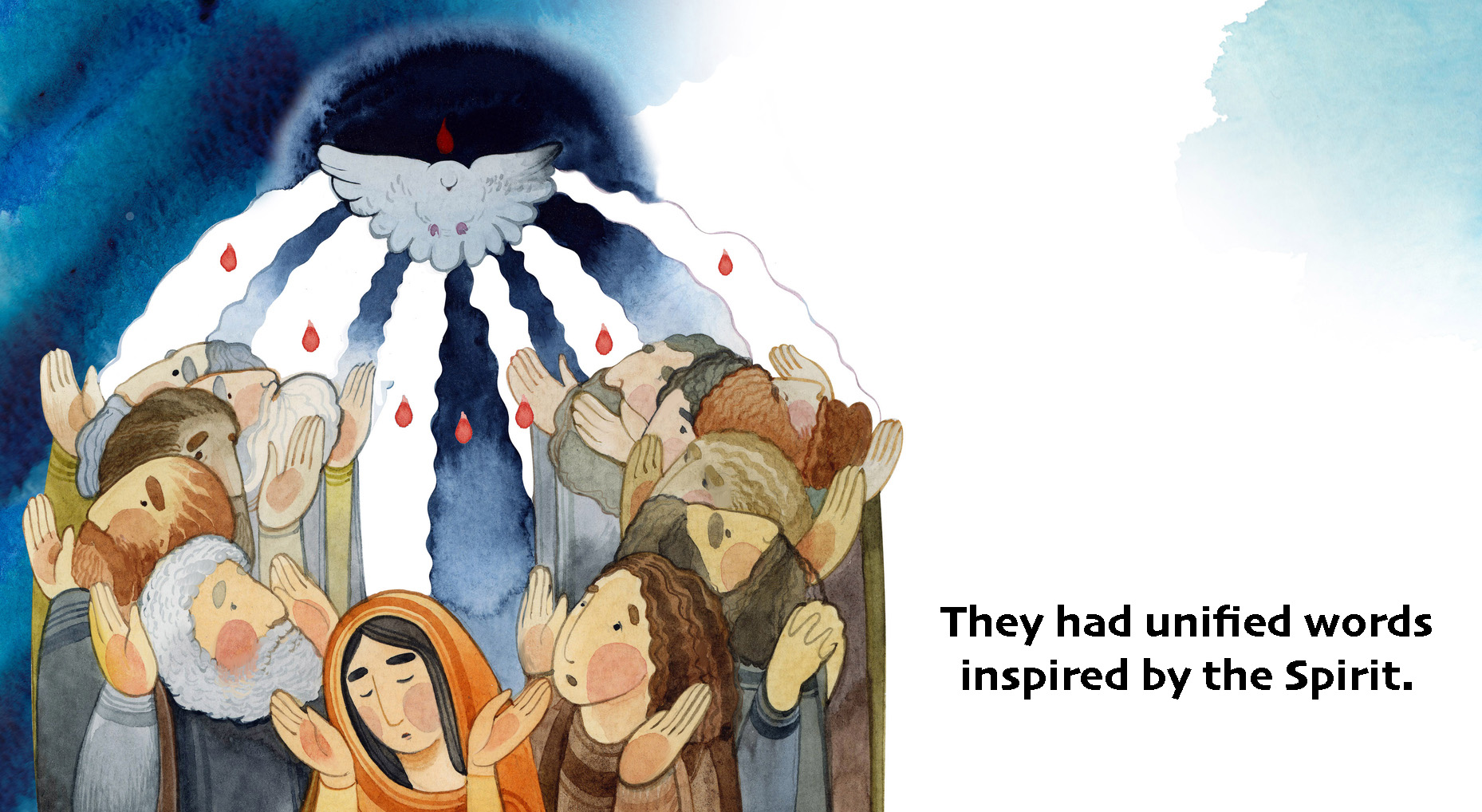Lectionary for June 8, 2025
Day of Pentecost
Genesis 11:1-9; Acts 2:1-21;
Psalm 104:24-34, 35b;
Romans 8:14-17; John 14:8-17
Last week we talked about a supernatural unity of Christians across social positions, gender and different relationships to earthly power. Jesus says this strange unity that crosses boundaries testifies to his mission and God’s love. This week, in Christian Pentecost (see note below), we return to the topic of unity. I will focus on three examples of unity: healthy, unhealthy and Godly unity.
First, we turn to the Genesis 11 account of the city of Babel. In the narrative, the post-flood humans have migrated east to a place where they could all live together. They wanted to make a name for themselves so they wouldn’t be forced to separate and spread out over the earth (4). The goal of building the city and tower in the text, contrary to many ancient and modern interpretations, was not an assault against God or to storm heaven somehow. Rather, it was an effort to preserve unity and avoid dispersion.
In the introduction to the text, the Hebrew says, literally, “and there was, in all the earth, one language and singular words” (1). The last couple words of that verse are interesting to translate, because the word we usually translate as “one” is rendered in the plural. French philosopher Jean Luc Nancy spoke about “being singular, plural” in highly intimate, intertwined human relationships. That is what the text is trying to portray, I believe. After the flood, humanity felt vulnerable and wanted to stick together. What’s so wrong with that?
For the “generation of dispersion,” as French rabbi and writer Rashi calls them, their unity and speaking one word was rooted in a fear of God and a desire to take care of themselves. But God’s desire for humans following the flood was the same as it was after the garden. After tragedy, humans were to dust themselves off and then choose to live into God’s calling to be fruitful, to multiply and to fill the earth.
God isn’t worried in the Genesis 11 account about an assault on heaven. Instead, God descends twice (5 and 7) to become closer to the people so they would return to the mission of filling the earth. Speaking one word is good, unless it’s a word that instills fear and prevents growth and the fulfillment of God’s mission.
When our unity is inspired, strengthened and guided by God’s Spirit and informed by Jesus’ unified words, we are furthering God’s mission.
Jesus gave a counterexample of Godly unity of speech and thought. In response to Philip’s plea to see the Father, Jesus said that anyone who beheld him already had seen the Father (John 14:9). Jesus then appealed to another sense. In addition to just seeing God in Jesus, the Messiah insisted that those who listened to him were hearing God. Jesus and God the Father spoke/speak one, united word.
This Christology of unity, by the way, is why I choose to interpret grace as a primary motivation for God’s actions throughout the biblical text. After all, reading the God of the Hebrew Bible/Old Testament as mean and wrathful and Jesus’ God as kind and gracious is rightly condemned as the ancient heresy of Marcionism. Far too many of our Lutheran congregations turn “law and gospel” preaching into dualistic theological heresy. God’s judgment is always in service of God’s grace. Christians believe that “God is good all the time, and all the time, God is good!”
One of the most profound ways that we see God’s goodness is in healing what humans have gotten wrong. Whether founded on fear-based unity or on division, God urgently desires to fix unhealthy human relationships. This is true both for interhuman relationships and for relationships with God.
The Jerusalem Pentecost experience united God’s Spirit with humans (Acts 2:4) and united Jews from all over the world in sharing unified words of praise of God’s mighty actions (11). Crucially, not everyone spoke the same language. But they did have unified words, inspired by the Spirit, not by fear. And these unified words caused them not to seek to stay huddled together but to go out into the world, telling people in their multiple languages what God had done.
Look, we know that humans can be unified around evil purposes or around holy purposes. Not all unity is good. But when our unity is inspired, strengthened and guided by God’s Spirit and informed by Jesus’ unified words, we are furthering God’s mission.
Note: The Council of Nicaea in 325 decoupled the Christian observance of Pentecost from the earlier Jewish calculation of Pentecost/Shavuot. Early on some churches in the East followed the biblical calculation (Leviticus 23), while others followed Rome’s hybrid solar calculation, and some (like in Alexandria) were stuck in the middle. The Roman church won the dispute. Now Jews and (most) Christians celebrate Pentecost on separate days. This year, the biblical/Jewish Pentecost started June 1. Postbiblical Pentecost, for both Western and Eastern Christians this year, is celebrated June 8.









